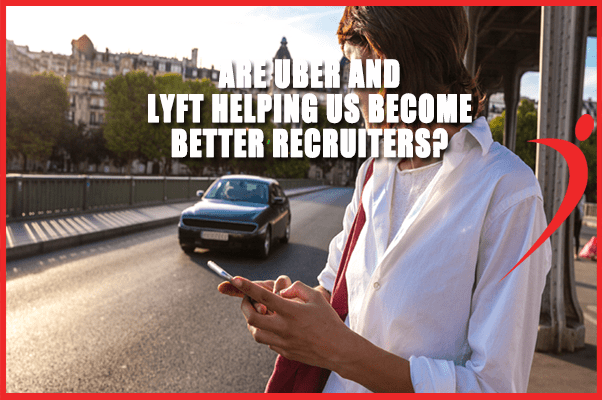
Guest post by Technology Executive & Investor, Tony DiBenedetto
If you have ever hired anyone, you know how hard it is to learn what a candidate is really like underneath the professional façade. We use lots of different methods to peel back the layers, including multiple interviews, various people speaking with the candidate, mock demos, behavioral interview techniques, reference checks and many others, all in an effort to figure out who the person on the other end of the interview really is. I have hired thousands of people and still feel we guess an awful lot about who we are really hiring.
Interestingly, I think passenger ratings from Uber and Lyft could help us shed a little light on this prickly problem. Most of us don’t think much about the way we act when we grab an Uber ride from the airport or to an event across town. But I was at a conference recently where several people were comparing their Uber and Lyft passenger ratings. One of the people at my table joked that it would be funny if we asked candidates what their score was as part of the interview process. We all laughed, but then I thought, this could really be a great idea.
I’m a bit of an Uber enthusiast already, stemming from a social experiment I conducted a few years back during which I took a break from driving my car and used Uber as my exclusive means of transportation around Tampa. The experiment was so successful in terms of cost savings and productivity that I gave up my car altogether and instituted Uber for Business at my company. Now, it seems that Uber and Lyft may have even more to offer companies like mine as we continually seek out more effective hiring strategies. The passenger rating is like an invisible camera into someone’s life. It sheds a little light on who they are and how they treat people when no one is watching, and it gives you an indication of how a candidate might act with a customer or fellow employee when no one is watching.
Most of us want to hire people that treat others with respect, especially our customers and fellow team members, and we will go to great lengths to find employees like that. The passenger rating could be another key to unlocking that mystery and hiring the right people for your company.
So what passenger rating should we look for when interviewing someone? Most of the folks at the conference had very high scores of 4.75 to 4.98. But Uber and Lyft drivers will tell you that passenger ratings in the 3.x range usually indicate an unpleasant passenger. With that in mind, I’d like to propose an Uber-Lyft passenger rating standard:

Is this standard foolproof? Of course not.
It’s possible that a driver will get upset about something beyond the passenger’s control, or maybe the candidate hasn’t used a ride service enough to develop a solid rating yet. Still, we all have a complex puzzle to solve when it comes to hiring the right people, and Uber and Lyft may have just given us an insightful clue.
About Tony DiBenedetto
A 30-year executive, serial entrepreneur and thought leader, Tony is the former CEO of technology company Tribridge, where he led the strategic direction, development and vision for 19 years. He also served as CEO of Concerto Cloud Services, a subsidiary of Tribridge. He is currently Executive Entrepreneur-in-Residence for Tampa Bay Wave and on the board of several fast-growing companies.
Tony co-founded Tribridge in 1998 and led the company through the acquisition and integration of several companies, resulting in a compounded annual growth rate of over 40% each year. He was most recently recognized with the Community Dedication and Leadership Award by Tampa Bay Tech and named among the Top 25 Technology Disrupters in the country by CRN magazine.
Tony is the founder of Think Big for Kids, the premier teen initiative of Boys & Girls Clubs of Tampa Bay that helps underprivileged youth ages 12-18 discover their untapped potential by bringing them highly structured education, mentorship and career path development. Think Big for Kids partners with like-minded organizations representing diverse industries to reduce systemic poverty and prepare kids to excel in high-demand professions of the future workforce.

